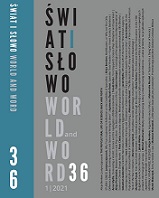Czytelnicy tekstów specjalistycznych. Kręgosłup superinteligentnego społeczeństwa
Specialist Texts’ Readers—Super-Smart Society’s Backbone
Author(s): Agnieszka Ślęzak-ŚwiatSubject(s): Education, Sociology
Published by: Akademia Techniczno-Humanistyczna w Bielsku-Białej
Summary/Abstract: The objective of the paper is to show how important it is not to assume that the reading skill remains stable after being learned. Hayashi (2017) emphasises that “if you don’t have the reading skills and if you learn history, physics or chemistry, you won’t understand the definitions,” which is why developing and monitoring reading skills well into 6th and 7th grades are required in a super-smart society. Pointedly, reading skills must be regularly practised and recycled to keep abreast with the influx of information a reader needs to process. One of the components of the reading skill is word knowledge (both form and meaning). As the present study strives to illustrate, defining and enumerating what it involves constitutes a major problem, even for English philology students. Therefore, programming languages of Web 3.0 are discussed in terms of mediating between academic (specialist) and pop-cultural (non-specialist) discourses, helping the reader to refine the content of the text they are exposed to. As the research shows, the algorithmic element of Semantic Web is helpful in taming the density of specialist texts, and it may ultimately serve a human to connect the dots of data and facts to create a base for knowledge as it offers openly accessible tools to determine inconsistencies of terminology to a wide audience of both specialist and non-specialist readers who can use appropriate skills, media and activities to evoke their personal response to science (research findings) which would otherwise be undecipherable due to its highly specialist lexis.
Journal: Świat i słowo
- Issue Year: 1/2021
- Issue No: 36
- Page Range: 45-60
- Page Count: 16
- Language: English

